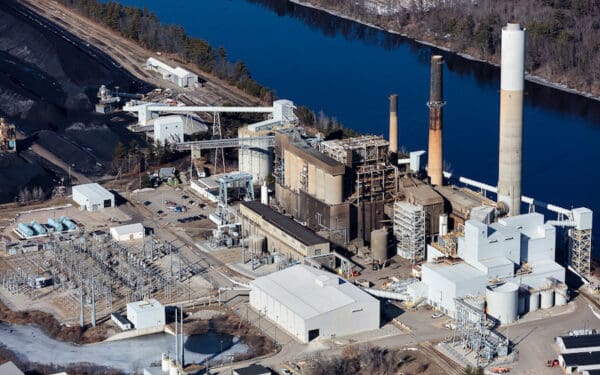Above: Zipcar founder Robin Chase talks about the future of self-driving cars and the opportunities we can pursue now to ensure they will be a boon to our economy and our climate – and not a burden.
Self-driving cars have tremendous potential. But their promise could go one of two ways, according to Zipcar founder and former CEO Robin Chase: “One direction leads to a productive new century where cities are more sustainable, livable, equitable, and just. But if we take the wrong turn, we’re at a dead end.”
Chase points to pollution, congestion, unemployment, and lost tax revenue as possible downsides to self-driving cars – if we do nothing to prepare for them. If we actually want to achieve that sustainable, livable, equitable, and just future, we’ll simply need to be proactive.
That’s what’s so exciting about a bill filed last week in the Massachusetts state legislature. The bill, filed in the Senate by Sen. Jason Lewis (D-Winchester) and in the House by Rep. Tricia Farley-Bouvier (D-Pittsfield), would create a framework for self-driving cars and help lead the nation by putting in place several innovative and well-thought-out policies.
Protecting Our Streets, Air, Climate – and Car Owners
At the most basic level, the bill would allow self-driving cars on streets and highways throughout Massachusetts. It would give both the Registry of Motor Vehicles and MassDOT say in regulating self-driving cars and it would allow for a self-driving car phase-in period, with testing and pilot projects permitted before driverless cars are available for general use. The bill would also take other necessary but unglamorous steps such as allowing the Registry to exempt self-driving cars from certain inspection requirements. After all, a self-driving car won’t need to have some standard car components – like, say, a steering wheel.
The bill also allows Massachusetts residents to take advantage of some of the most promising possibilities of autonomous vehicles, by:
- Requiring driverless cars to be zero-emission vehicles, to ensure they don’t worsen our air and climate pollution, while exempting self-driving heavy-duty vehicles like trucks and buses.
- Limiting self-driving cars to one mile of driving without passengers, to make sure that such “zombie” vehicles don’t clog up streets while endlessly circling city blocks to avoid paying or looking for parking while their owners shop or dine (freight and emergency vehicles would be exempt).
- Establishing a per-mile road usage charge on zero-emission driverless cars to make up for lost gas-tax dollars. This charge could be lower for cars that are carrying multiple passengers, travelling during off-peak hours, and operating in areas without many public transportation options.
Finally, the bill includes important protections for car owners, including requiring MassDOT to take “all necessary steps” to protect individuals’ privacy when self-driving cars collect data, and ensuring that the road usage charge does not apply to miles travelled outside the Commonwealth or on private property. Likewise, autonomous vehicles that operate with the expectation that a human driver will be available to take over the wheel in an instant would only be permitted for testing purposes, as it is against human nature to switch from watching a movie to handling an emergency in seconds.
Preparing for the Future Today
At least one self-driving car is already driving on some Massachusetts streets, so the time is now to develop and implement good policies. If this new bill passes, Massachusetts will have implemented the most forward-thinking and comprehensive approach to self-driving cars in the United States. But right now, other states are ahead of us (just last year, Tennessee passed a law that not only allows self-driving cars on the road but also establishes a mileage-based use charge on them). With this bill, Massachusetts has the chance to help lead the nation into an exciting future.




